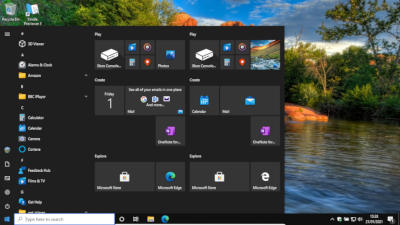 With over 1 billion installations (according to Microsoft), Windows 10 is reckoned to be just under 75 percent of the Windows market (StatCounter). Which means there’s still 250 million or so Windows machines not running Windows 10. So what is the desktop share that isn’t Windows 10? And why?
With over 1 billion installations (according to Microsoft), Windows 10 is reckoned to be just under 75 percent of the Windows market (StatCounter). Which means there’s still 250 million or so Windows machines not running Windows 10. So what is the desktop share that isn’t Windows 10? And why?
Those 250 million machines are still running Windows XP, 7 or 8. That’s a population larger than Brazil. Why haven’t they bought the Cool-Aid and traded up?
After 12 years, support for Windows XP ended April 8, 2014. We know there’s a long tail of home machines and legacy installs running Windows XP:
- for simple functional reasons – “why do I need to change?, Windows XP does everything I needed then and now.”
- for simple economic reasons -“I haven’t got the cash for an expensive software upgrade.” Never mind the ancient 32-bit and first-gen 64-bit machine with a tiny hard drive and even less memory that won’t even run anything more recent.
- for skills reasons – “upgrading is too hard, it’s a risk, it might eat my data.”
- for legacy application reasons – “our production line / accounting system / heart pacemaker diagnostic system isn’t compatible with anything else.” These folks are saying to themselves, “if it ain’t broke, then don’t break it.”
We also know there are hand-me-down machines in third world and developing economies kept running by economic necessity.
Some of the same reasons apply to old installs of the hugely popular Windows 7, a version that worked so well, hardly anyone would have upgraded if it hadn’t been free.
Then there’s Windows 8, an operating system so bad, any machines not upgraded to Windows 10 are probably sitting in a closet.
Windows as a whole has over 87 percent of the desktop OS market worldwide (NetMarketShare). All versions of Apple’s macOS account for less than 20 percent of U.S. computers and less than 10% worldwide. Those are mostly in the hands of the creative types. Our old friend Linux runs about 2 percent which is good for desktop (it’s everywhere on servers), while Ubuntu and Chrome OS are way below 1 percent worldwide. Those are the rebels and the geeks and the students with Chromebooks.
There’s clearly 250 million or so legacy Windows users who either don’t know, don’t care, or can’t afford to move on. That number will decline as those machines break down, their legacy apps are replaced or obsolete, or possibly their owners shuffle off this mortal coil.
Not everyone has the cash, the skills, or the basic need for the latest whizz-bang. AJS